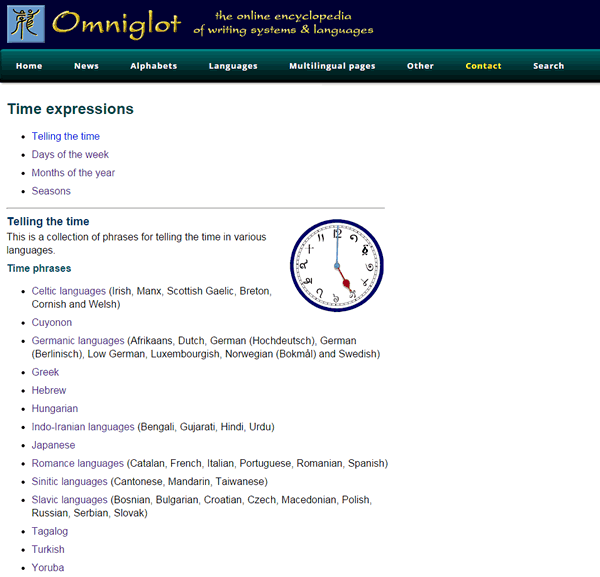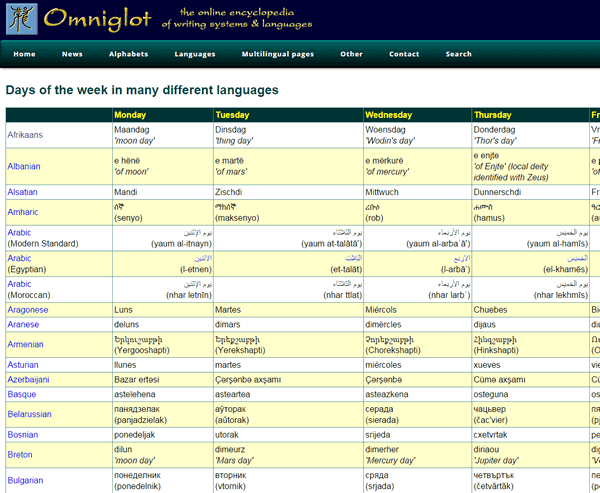Today we have a guest post from Alex Sorin of Foreigncy featuring an interview with their Persian linguist, Matt Cheek.
Those who have succeeded in turning their passion for languages into a career making a difference in the world know that mastering a language takes years of persistence and dedication. Turning your passion into your trade requires more than just language study, it includes significant time spent abroad absorbing a country’s culture, and always seeking new tools to harness your skills. The below interview was conducted with Foreigncy‘s Persian linguist, who shares his thoughts on what it took to master the Persian language and how his journey studying Persian led to a deeper appreciation of a foreign culture.
First, what is your favorite Persian expression?
دستت درد نکنه – “Dastet dard nakoneh” It’s an idiomatic expression meaning roughly “thank you” or “don’t trouble yourself” in Persian, but the literal translation is “May your hand not have pain.” I also really like the Persian saying, گل پشت و رو نداره “Gol posht o ro nadareh” which is used specifically when you are sitting directly behind someone and they turn around to apologize for your having to sit directly behind them and see the back of their head. This phrase is a response to that apology and literally translates to “A flower doesn’t have a front or back.” I like idioms because they really reveal a lot about how people from that culture think.
When did you become interested in studying Persian and what were the most challenging aspects about learning the language?
I’ve always been interested in languages in general. In high school, Spanish and French were the only classes I consistently did well in, but I was basically ordered to be interested in Persian when I showed up to the Defense Language Institute and assigned to learn the language based on aptitude tests and the needs of the Marine Corps. Being assigned to Persian turned out to be an amazing thing as I fell in love with the language and the culture of Iran almost instantly. I can’t imagine where I’d be if I had been assigned any other language. The most challenging aspect of the language for me to grasp was the direct object marker را “ra” and when to use it.
How would you compare the military’s language learning methods to that of universities? What’s better or worse?
Honestly, the military’s language training was so vastly superior it’s not even a fair comparison. At DLI you are assigned to a class of around 20-30 students from all military branches. All of the students have no knowledge of the language at all when the program begins. The class is further broken down into sections and each section may have 4 students each with each section having a designated “main” professor. The professors at DLI are all native speakers for the target language and they rotate hours teaching your section, so you may be exposed to an Iranian PhD with a Tehrani accent in the first hour of the day, an Iranian PhD with a Shirazi accent in the second hour, and so on. Each day you study with these native instructors for a minimum of 7 hours and then you have mandatory study halls and homework. So, it’s a very intensive program and my Persian program lasted for 52 weeks. By the end of the program we were dreaming in Persian and able to carry on full conversations about abstract ideas and we reached levels of fluency that were pretty astounding.
In college, I was in the highest level of Persian classes offered by UNC and I was one of three students in the class and the only non-native speaker among the group. My professor was a PhD holding Iranian, but she was the lone professor, which meant exposure to only one accent. The military simply has the advantages of being capable of taking 100% of students’ time and good performance on the foreign language proficiency tests comes with a monthly pay increase. While in college I had Persian classes three days a week for fifty minutes at a time with homework and readings to complete before each class session. If you want to become proficient in a language and your plan is to do so through college classes, you will need to supplement whatever classes you take with a lot of additional resources, whether that is daily language drills like we do at Foreigncy, time spent speaking with native speakers, listening to podcasts and YouTube videos, or reading news articles. I have plenty of friends that became highly proficient in Persian through college though, so it’s definitely possible to become proficient in a language by way of college classes.
Tell me a bit about your time in Tajikistan. How crucial is it for a Persian language student to live in a country where the language is spoken? What role did being immersed in the culture play in shaping your mastery of the language and appreciation for it?
I had a great time studying in Tajikistan. It was an eye-opening experience because I thought I was going to be able to communicate effectively going into the experience, but what I found out is that Tajik involves far more Russian loan-words than I had expected. It’s crucial for a student of any language to immerse themselves in the language and culture in order to really learn to speak the language on a high level, but immersion doesn’t exactly necessitate living in that country. For instance, a Persian speaker can speak far more Iranian Persian in parts of Los Angeles than they can in Dushanbe, Tajikistan. I was really in a unique position there as I was immersed in Tajik language and culture, but my goal was to study Iranian Persian. The role that my immersion experience played in my language skills was a large one as I improved my speaking and listening a great deal, I learned a lot more about everyday idioms and speech patterns, and I was able to have some great experiences observing how Sunni Islam is lived on a daily basis.
When you were starting out as a Persian student, what were some study strategies that worked best for you?
I cannot stress enough the importance of listening to and communicating with native speakers. You can pick up some bad habits if you only speak with second-language speakers of a language and you will develop an awkward accent. For me personally, I spent as much time with my professors outside of the classroom as they would allow me to. I did everything short of following them home at night because I saw the need for speaking and listening and having immediate feedback if I mispronounced or misunderstood something. Another thing I did then and do still to this day is I try to translate everything into Persian in my head, even my thoughts. A good practice to get into is to, when speaking English, stop yourself and think, “how would I say that in X language?” If you can’t express the thought in your target language, then go learn how to. I also studied flashcards religiously, but it’s important to not just look at the target language and think of the English translation, the reverse is harder and helps ingrain the target word into your brain so you can begin to think in the target language. It’s also important to approach a language with no fear, don’t be afraid of messing up or sounding like an idiot.
If I was a Persian student, how do you recommend navigating a Foreigncy Persian set to utilize it to the fullest?
You should review the flash cards thoroughly, go through them with the Persian side showing first and listen to the pronunciation of the words you don’t know how to pronounce. Then, go through the flashcards again with the English side showing first. If you can’t think of all of the Persian equivalents of the English words, review the cards again. Then complete the drag and drop quiz a few times until you feel comfortable enough to read the article. Read the article and copy/paste words you don’t know to save later so you can define them and make flashcards out of them. If you did this everyday, there is no reason why you shouldn’t be able to pick up a Persian language newspaper and read and comprehend it.
What separates someone who becomes a language expert from those that don’t quite make it to that level, because we all start at the same place. Is it raw talent and inherent language ability, or does determination and persistence win out in the end?
There is undoubtedly some aspect of innate ability involved in second language learning, this has been scientifically proven. But, determination plays a much larger role in my eyes. If you are willing to put in the time and energy actively seeking out uses for your second language, you will not only improve linguistically, but you may even find unique opportunities you never would have had as a monolingual person. For example, in an attempt to use more Persian and Dari, I volunteered to translate green card application appointments for Iranian and Afghan refugees in my city through a non-profit organization and it’s not only been productive for me from a linguistic perspective, but it has been a rewarding experience that has led me to meeting some interesting people with unique perspectives.
About Foreigncy
Foreigncy is a critical language training website for professional and aspiring linguists. Foreigncy’s team prepares daily language sets that prepare you to read foreign language news articles in Arabic, Persian, Urdu, Hebrew, Mandarin, and Russian.

